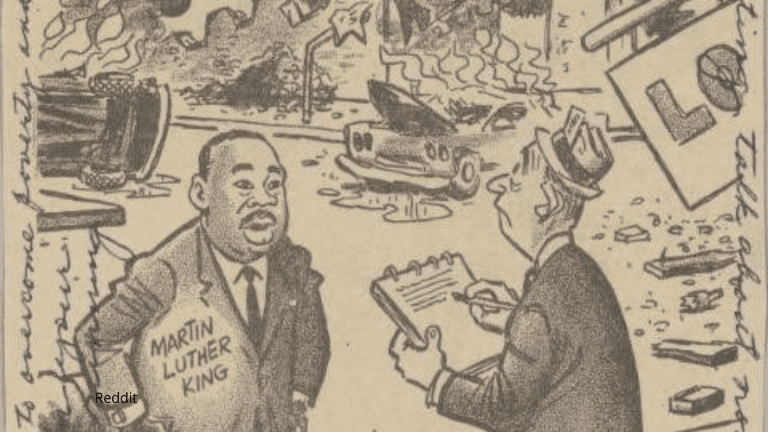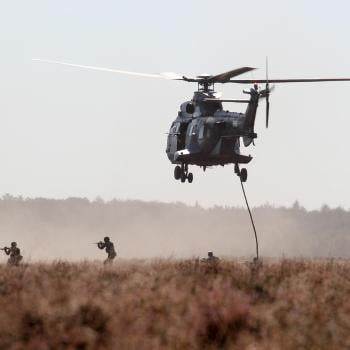
Whenever I teach on the crucifixion of Jesus, I often make note of Mark 15:31: “In the same way the chief priests also, along with the scribes, were mocking Him among themselves and saying, ‘He saved others; He cannot save Himself.’”
Jesus does not reply. He not only does not get down from the cross, which was in His power to do, but He does not even respond. I suspect that it is human nature, at least a part of our sinful human nature, to defend ourselves. I suspect that if I were in that situation, and if it was in my power to do something about it, I would have.
Here is the significance of what Christ has done, however. If Jesus would have come down from the cross, if He would have demonstrated His power and proved to them Who He was, He would have condemned them all. It was only by His remaining on the cross, that they might have life. Without His defeating death, there would be no resurrected life for God’s people.
But, and there is more, they can only have such life if they repent. Interestingly, according to the Gospel of Luke, Jesus does say something while on the cross. He cries out “Father, forgive them; for they do not know what they are doing” (Luke 23:34).
You see, it was love that kept Him on the cross. It is our pride that would have taken us down from it.
Peter picks up on Jesus’ actions of non-violent resistance and notes that Jesus is a model for how we are to respond to opposition: “For you have been called for this purpose, since Christ also suffered for you, leaving you an example for you to follow in His steps, who committed no sin, nor was any deceit found in His mouth; and while being reviled, He did not revile in return; while suffering, He uttered no threats, but kept entrusting Himself to Him who judges righteously” (1 Pet 2:21-23).
Here is the point: A Christian response to injustice has been modeled by Jesus. We are to not worry about ourselves—for that would be the opposite of love. Instead, love lays down its life for the other.
Now, we all know that we consistently fail in this. We too often save ourselves and condemn the other. It seems as though our nature is to retaliate.
Racial protests today
I don’t know about you, but what’s been going on in America has been really troubling me. I have been troubled both by the violence that has accompanied the protests and by response of some whites that we must reject the protestors because of the violence and not listen to their pleas.
As I reflected on things, I began to learn some things that have helped to put a different twist on understanding both the protests and the violence we are witnessing.
First, according to most reports,[1] the violence is representative of a small group that does not reflect the majority. The majority are, in fact, condemning the violence.
Secondly, as I reflected on matters, I realized that in many ways our country was founded upon protests that turned violent. The Boston tea party was a violent protest the led to the revolutionary war. This does not make violent protests acceptable. But if we are going to approve of the one, maybe we should not be so quick to condemn the other.
Thirdly, as I researched further, I became aware that the bloodiest and costliest war in American history was the result of protests against slavery. It has been estimated that 600,000+ died as a result of the civil war,[2] making it not only the costliest war in American history but responsible for more deaths than all the other wars the US has waged combined. It is important to note that this violence was predicated on keeping African Americans in a state of subservience.
Fourthly, I found that America has a 400-year history of violence and oppression by whites against the African American community.
I was surprised to learn that the violence and abuse did not end with the abolition of slavery.
Instead, the violence continued—it just took other forms. The era of convict leasing, lynchings, Jim crow laws, and mass incarceration merely changed the form of suffering for African Americans after abolition. It did not end it.
Fifthly, I have learned that much of American history is marred by violent protests by whites against African Americans in order to maintain a system of oppression over them. The KKK held violent rallies across the country in which they burned down property and killed thousands of African Americans. Some of their actions were cheered on by the White House during the tenure of Woodrow Wilson.
I learned that Wilson was given a private showing of the movie “The Birth of a Nation” at the White House. This movie, which was a blockbuster throughout cinemas across the nation, was the epitome of racist, anti-black propaganda. The movie glorified the KKK and depicted African Americans as subhuman sexual predators that were ignorant, venal, predatory, and best suited in a subservient life.
I learned that this era was also replete with fake news. I found that the white press repeatedly manufactured stories of African Americans alleging that they were raping white women.[1]
In looking into this I came across the work of Ida B Wells, a young African American woman, who investigated and reported on the lynchings and the charges against those who were lynched. She found that the charges of rape and criminal activities were almost always trumped-up charges.
Nonetheless, these stories apparently aroused the fury of the Southern whites who rallied with more hangings and lynchings of African Americans.
And I learned that as a result of Ida Well’s reporting an estimated 600 white men formed a mob and, on Nov 10, 1898, systematically killed all the black leaders in Wilmington, NC, and they destroyed much of the property within the city; though Wells was able to escape.
I also learned that in 1919 in Corbin, Kentucky all of the African Americans were violently expelled from their homes and the entire city was rid of all blacks. As I learned of this, I was overwhelmed when I found out that this was but one of many such racial expulsions. In fact, between the Civil War and the 1920s, there were more than a dozen cities in which all the blacks in that town were violently expelled in Georgia, central Texas, Indiana, and throughout Appalachia.
I, also, learned that in 1962, a mob of white segregationists rioted in protest of the University of Mississippi admitting its first black student.
What about the violence today?
There is no question that we must reject and condemn the violence that we are seeing in our cities today.
But as I reflected on all this, I wondered if I would respond any differently if my family’s history had been marred by 400 years of suffering, and, if I had to face injustice as a regular part of my daily life.
As I contemplated this, I was struck by the intense irony: on the one hand, we have a history of violent protests by whites against African Americans, which were often intended to maintain a system of oppression, including slavery, the convict leasing system, and thousands of extra-judicial lynchings; and, on the other hand, we have African Americans rising up today in protest themselves and, yet, their protests, which have been marred by some who have turned to violence, are being ignored by some whites on account of the violence.
We have a history in which white terrorism has historically been a greater problem in the US than that of African Americans. As I reflected on the fact that white terrorism has largely been committed against African Americans and in order to maintain power over them, whereas, black terrorism has been a plea for justice, I was deeply grieved.
If we want to end the protests, then let’s works towards a more just society
During the race protests of the 1960s, Martin Luther King Jr. was asked how to put an end to the racial protests. He responded “Social justice and progress are the absolute guarantors of riot prevention. There is no other answer.”[3]
If we want to help bring an end to the protests, we need to recognize our history, listen to the voices of those who have been oppressed, and discern how we can help create a just society.
Unfortunately, we are less like Jesus than we would like to admit. Though He did not retaliate, we often do. Sure we must reject the violence, but we cannot allow the violence of some to silence the pleas of the other.
[1] https://www.nytimes.com/2020/07/28/us/portland-protests-fact-check.html
[1] The proposition that black-on-white crimes are abundant is the same belief that motivated Dylan Roof to enter a Black church and gun down 9 church-goers in Charlestown, SC in June 2015. “Court testimony revealed that during the shooting Roof said, ‘Y’all are raping our white women. Y’all are taking over the world.’” https://www.splcenter.org/20180614/biggest-lie-white-supremacist-propaganda-playbook-unraveling-truth-about-%E2%80%98black-white-crime.
[2] The number is unknown because there are no authoritative numbers relating to the Confederate side.
[3] Tisby, Jemar. The Color of Compromise (p. 143). Zondervan. Kindle Edition.













